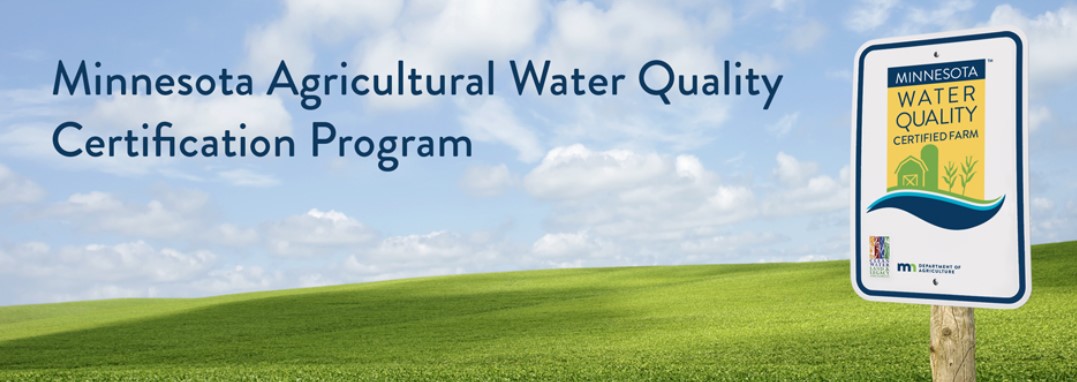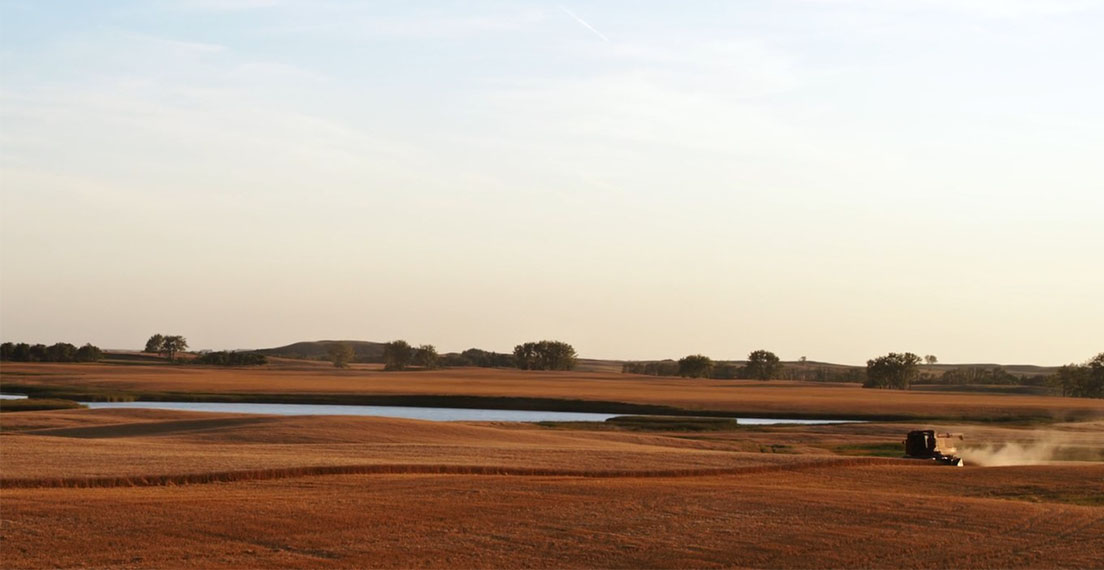Minnesota Farmer Spreads the News with his Conservation Practices
U.S. wheat farmers know that conservation practices that foster economic and environmental stewardship are increasingly important to the world’s buyers and wheat food processors. Continuing our discussion on conservation practices that help make U.S. wheat production more sustainable, the following is an article from the Minnesota Department of Agriculture that appeared in the April 2021 issue of Prairie Grains magazine.
After enrolling in the Minnesota Agricultural Water Quality Certification Program (MAWQCP), dozens of Bill Zurn’s distant relatives [contacted him] to congratulate the longtime Minnesota farmer after his conservation practices were profiled in the local paper.
“We’ve seen very positive feedback from our landlords and family members,” Zurn says. “Some of my long-lost cousins have come back and congratulated us. They were [very happy], and we really didn’t expect that.”
Zurn was an original board member during the MAWQCP’s inception, and he officially enrolled in summer 2020. He said he’s glad the program recognizes the diverse farming practices of Minnesota and factors in how weather and growing patterns differ throughout the state.

The Minnesota Agricultural Water Quality Certification Program is a voluntary opportunity for farmers and landowners to take the lead in implementing conservation practices that protect water resources in the state., earning certification for water quality.
“From Rochester to Roseau, there’s a big difference here, and it’s important we understand that,” he says. “It varies so much across our state, and it’s important to stress that.”
Zurn farms in Becker and Mahnomen counties with his wife, Karolyn, and their sons, Eric and Nick. Together, the Zurns grow corn, soybeans, alfalfa and wheat. Though they had already been practicing cover crops, pest management and conservation tillage, Zurn credits his local National Resource Conservation Service with helping improve his family’s production practices to become certified.
“They were excellent to us and showed us what we needed to do what we could change,” says Zurn, who’s also a director with the Minnesota Soybean Research & Promotion Council. “They are great to work with. We as farmers have gotten a lot more out of this than we put in.”
“Farming has changed. We’re not perfect, but we’ve always tried to do the best we can – with technology and precision ag – and meet the standards.”
Farmers can contact their local Soil & Water Conservation District to apply for MAWQCP certification and then complete a series of steps with local certifiers using a 100 percent site-specific risk-assessment process. By law, all data is kept private and only by signing a formal release can a farmer’s name be released publicly.
After becoming certified, farmers like the Zurns receive a 10- year contract ensuring they will be deemed in compliance with any new water quality laws, an official MAWQCP sign to display on their farm and other benefits developed by local MAWQCP providers.
“We applaud Bill for his dedication to conservation and for continuing to promote best management practices in Minnesota,” says Brad Redlin, MAWQCP project manager. “Bill has been a champion of this program since the beginning, and we are thankful for his full-throated endorsement.”
More than 1,000 producers are currently certified in the MAWQCP, covering more than 725,000 certified acres, and implementing more than 2,075 new conservation practices. Gov. Tim Walz has set a goal of enrolling 1 million acres in the MAWQCP by 2022.
“We appreciate what they’re doing with this program,” Zurn says. “Farming has changed. We’re not perfect, but we’ve always tried to do the best we can – with technology and precision ag – and meet the standards.”
Zurn says he’s eager to spread the word about the benefits of the MAWQCP to not just family and friends, but the agriculture community – and beyond.
“For the time and effort, it’s very worthwhile,” he says. “We’re proving to the United States that we’re doing good sustainable and renewable practices here in Minnesota.”
Read more stories about what Minnesota farmers are doing to conserve water and soil.
Read other stories in this series:
Special Climate and Sustainability Committee Launched on Earth Day
Precision Agriculture Improves Environmental Stewardship While Increasing Yields
U.S. Farmers Always Think About Economic and Environmental Sustainability
Technology, Innovative Farming Practices Advance Wheat Farm Sustainability
U.S. Farmers Embrace Conversation Practices
Farmers Look to New Technologies to Foster Precision Agriculture
Cargill CEO Highlights Farmers Role in Pandemic and Promoting Sustainability


